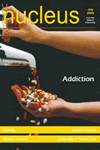Philip Johnson starts with familiar territory; evolution as dogma, the aggressive teaching of evolution in schools, and the Intelligent Design movement of which he was a founder. Readers of his other books, such as Darwin on Trial, will have encountered this before, and may start to wonder whether this addition offers anything new.
It's worth persevering, as Johnson moves on to recount the stroke that left him paralysed on one side in 2001. The threat of physical dependence and losing his intellectual abilities left him fearful and depressed. However, Johnson found solace in the Scriptures, and discovered a new level of relationship with the Lord through experiencing his providence and compassion. He describes himself pre-stroke as, 'not so much a believer in Christ as a skeptic of everything else… who had lost his faith in the world's definition of reason, but… knew only the world's Jesus.' Realising that his 'own brain was no solid rock' caused him to recognise his complete dependence on 'the real Christ, the Word made flesh'.
The stroke is one of two focal points for the book; the second is the events of September 11 2001. Johnson sees September 11 as a catalyst for widening the forum of 'right questioning', hoping that 'talented writers and speakers will come forward now to raise the important questions that have been kept from public view by the media monopolies'.
The Right Questions covers a wide spectrum: the role of scientific naturalism and relativism in education; how far a college education should grapple with 'what's the meaning of life?'; the Genesis account of creation, and why people seem unprepared even to consider it as literal. He delves into the nature of religious tolerance and pluralism, discussing the intolerance of tolerance, and skims the basis of liberty and autonomy, concluding that freedom is elusive in a society that rejects Christ. Ultimately he asks, 'What is the most important event in human history?'
The questions cover a lot of ground in little space, and I was left dissatisfied at the oversimplification of complex issues. It is, perhaps, his intention to raise more questions than he answers, but this leaves a sense of incompleteness to the answers that are only given in part. That said, the book is stimulating and encouraging and a welcome addition to his previous work. It is a reminder to keep our eyes fixed always on Jesus and not our own strength, particularly if we seek to use God-given intellectual abilities to promote right questioning in others in the hope that they will find the truth that sets them free.
Reviewed by Jacky Engel, CMF Research and Publications Assistant































